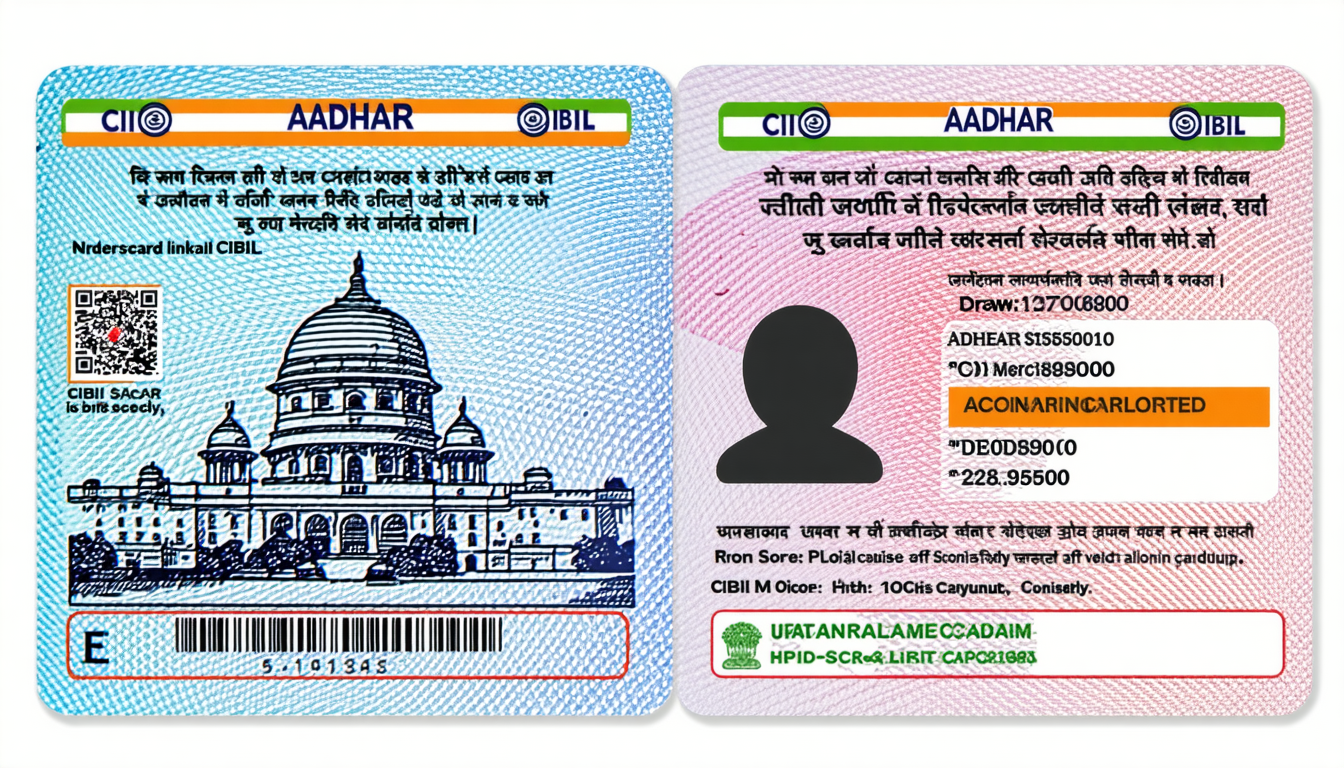In recent financial discussions, the concept of linking an Aadhaar Card with a CIBIL Score has sparked curiosity among Indian communities in the United States. While Aadhaar is India’s unique identification system, and CIBIL Score reflects creditworthiness, their intersection raises questions about cross-border financial implications. This article explores the relevance of the Aadhaar Card CIBIL Score connection for Indians residing in the US, its potential impact on credit access, and emerging trends in global financial identity systems as of 2023.
Introduction: Why Aadhaar Card and CIBIL Score Matter
For millions of Indians living in the United States, managing finances often involves navigating both Indian and American systems. The Aadhaar Card, a 12-digit unique identifier issued by the Indian government, is pivotal for identity verification in India. Meanwhile, the CIBIL Score, a three-digit number indicating credit health, plays a crucial role in securing loans or credit cards. Recent discussions about linking these two for seamless financial tracking have gained traction. This news piece delves into how this connection could affect Non-Resident Indians (NRIs) and what it means for cross-border banking.
Exploring the Aadhaar Card CIBIL Score Connection
The idea of integrating Aadhaar with CIBIL Scores stems from efforts to streamline financial transparency in India. Although this system primarily operates within India’s borders, NRIs with financial ties to their homeland are keenly observing these developments. As of October 2023, no official mandate exists for linking Aadhaar with CIBIL for US-based individuals, but pilot programs in India hint at future possibilities.
This integration aims to provide lenders with a unified view of an individual’s identity and credit history. For NRIs, this could simplify processes like applying for loans in India while residing abroad. However, concerns about data privacy and international compliance remain under scrutiny.
Significance for NRIs in the United States
For the over 4.5 million Indian diaspora in the US, as per 2023 Census estimates, maintaining financial links with India is common. Many hold bank accounts, investments, or property back home, making tools like Aadhaar essential. A potential Aadhaar Card CIBIL Score linkage could impact how their creditworthiness is assessed by Indian banks.
According to financial analyst Priya Sharma, “Linking Aadhaar with CIBIL could create a more robust system for NRIs to access credit in India, but it must comply with global data protection laws.” This highlights the dual need for efficiency and security in such integrations.
Challenges and Privacy Concerns
While the benefits of a unified system are evident, challenges persist. Data privacy is a major concern, especially with cross-border information sharing. The US has stringent laws like the Fair Credit Reporting Act (FCRA), which may conflict with India’s data handling practices.
Additionally, not all NRIs maintain an active Aadhaar-linked profile, complicating mandatory linkages. Experts suggest that any rollout must include opt-in options to avoid alienating users. Balancing innovation with privacy will be key to successful implementation.
Impact on Cross-Border Financial Systems
A linked Aadhaar Card CIBIL Score system could set a precedent for global identity-credit frameworks. It may encourage other nations to explore similar integrations, fostering smoother international banking. For US-based Indians, this could mean faster loan approvals or better interest rates from Indian institutions.
However, discrepancies between US credit scores (like FICO) and CIBIL Scores might create confusion. Financial institutions may need to develop conversion mechanisms or hybrid scoring models to address this gap. As of late 2023, discussions between Indian and US regulatory bodies on this matter are ongoing.
Future Outlook: What Lies Ahead?
Looking ahead, the Aadhaar Card CIBIL Score linkage could evolve into a broader digital identity tool for global citizens. With fintech innovations accelerating, such systems might integrate with blockchain or AI to enhance security. The implications for NRIs include easier access to dual-country financial products.
On the flip side, opposition from privacy advocates could slow progress. A balanced approach involving stakeholder input will be crucial. As this concept develops, staying informed will help individuals navigate potential changes effectively.
Conclusion: Navigating a Connected Financial Future
The intersection of Aadhaar Card and CIBIL Score represents a significant step toward unified financial identities, even for those in the United States. While promising streamlined processes for NRIs, it also brings challenges like privacy concerns and regulatory hurdles. As discussions progress into 2024, both opportunities and caution will shape this landscape. Keeping abreast of updates will ensure that individuals can leverage benefits while safeguarding their data.
FAQ: Aadhaar Card CIBIL Score Explained
-
What is the Aadhaar Card CIBIL Score link?
It refers to a proposed integration of India’s Aadhaar identification with CIBIL credit scores to enhance financial transparency. -
Does it apply to Indians in the US?
Currently, it primarily affects residents in India, but NRIs with Indian financial ties may be impacted in the future. -
Are there privacy risks involved?
Yes, sharing data across borders raises concerns about security and compliance with laws like GDPR or FCRA. -
How can NRIs prepare for changes?
Stay updated on announcements from Indian authorities and ensure Aadhaar details are current if linked to financial accounts.





